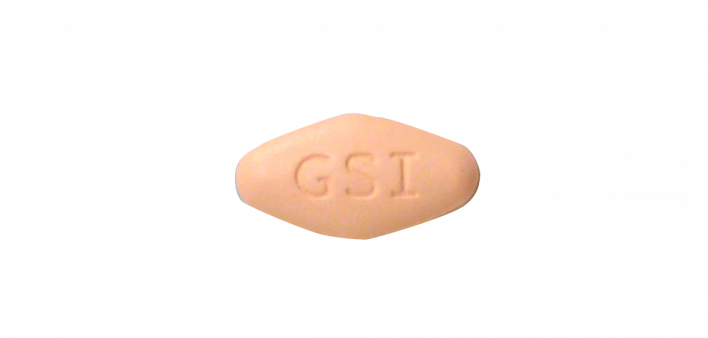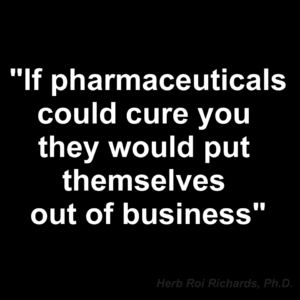Can You Expect a Cure from Your Doctor?
by TVance | November 4, 2022 3:04 pm
I am not a medical doctor, I am a Doctor of Nutrition, so I look at things from a different perspective than your physician. If you come to me with a problem, I will look at things like what is going on with your body in a different way, like what are you putting in your body and what you are exposing your body to throughout each day of your life. While your medical doctor will collect some data, take some samples to have them tested, and review the results. If you’ve presented the doctor with results that he or she is unfamiliar with, they will enter the results into a computer that offers potential treatment regimens.
 [1]
[1]
Either way, your doctor will prescribe a series of pharmacological regimens that will help relieve the symptoms that prompted you to see the doctor in the first place. If the doctor and his or her pills have relieved you of the symptoms, then he or she has done his job as a representative of the pharmaceutical companies.
What ails you?
Remember, symptoms are the body’s way of doing just like your car does when it gives you a flashing red light on your dash when your car is low on oil, gas, or air in the tires, etc.
 [2]
[2]
Using a chemical to reduce your symptoms is like taking the bulb out to stop the flashing red light on your dash. It does not get rid of the cause of the problem but just covers it up.
My job as a DN is very different from the MD. When someone comes to me, my challenge is to see if I can find a natural way to help my client change his or her lifestyle in such a way that the root cause of the symptom can no longer sustain itself inside the body.
I as a DN, do not offer a cure to any DIS-EASE, only the possibility that if the proper changes are made, the root cause of the disease can no longer exist, and the symptoms disappear. I even hate using the title “disease” to refer to anyone’s health challenge or complaint, because, personally, I do not believe in disease.
To me the term “disease” is your doctor’s method of classifying a group of symptoms that can be covered up by a particular pharmaceutical prescription, that is all. They give these groups of symptoms names so that they are more easily identified quickly and the match for pharmacological intervention can be determined promptly. This enables them to
Sell more drugs faster
 [3]
[3]
Do you think you will ever be able to go to the doctor for a cure? No.
In fact, if you knew the truth, you might not like it. What? Okay, if you must know, read on, otherwise stop reading right now.
This is how it’s done
Here is just one real-life example of what happens when a “cure” is discovered by a pharmaceutical company.
In 2014, pharmaceutical company Gilead Sciences received FDA approval to promote Havoni, a Hepatitis C therapy. Enthusiastically, Gilead launched a massive media campaign to promote the new drug.
 [4]
[4]
The regimen was one pill a day for 12 weeks. They cured 500,000 people of chronic Hep C to the tune of $13.8 billion in profits. The pill had a 96% cure rate, with most patients completely cured in 8 weeks. Then they stopped promoting it.
What?
Here was a patented cure for a chronic condition with a 90+ percent cure rate that they stopped promoting. They could potentially make billions of dollars a year from this FDA-approved investment. Why would they pull back like that?
Here’s why
Because it does not make sound investment sense, drug companies rely on the support of the banking industry, and they are responsible for delivering profits to their investors.
When their funding resources explain how this does not make business sense, not only do they but also the rest of the pharmaceutical world take notice. For without funding, there would be no pharmaceutical companies. Big pharma and banking companies work hand in hand to keep the machine running smoothly.
According to the bankers, promoting a “one-shot cure” does not make good sense when sustained cash flow makes more sense from treating symptoms over time.*
For the doctors who took notice in those years from 2014-2015, some of them still prescribe Havoni, though others don’t know about it and the Hep C patients don’t hear about it.
They still make $4 million a year on the drug they wish they hadn’t taken to market, for had they continued to promote it, there would be no patients with Hepatitis C today, and that would be a tremendous hit to their cash flow.
 [5]
[5]
This is how pharmaceutical companies work, based on long-term profits.
Are there pharmaceutical cures out there? Sure, there are. Harvoni is just one example. Fortunately for this example, the product went to market leaving a paper trail for us to follow, right back to the bank. I believe there are hundreds of cures that will never see the light of day, and you and I will never hear about them because they don’t make sense from the perspective of the bankers, who really control our health care.
* = “The potential to deliver ‘one shot cures’ is one of the most attractive aspects of gene therapy, genetically-engineered cell therapy, and gene editing. However, such treatments offer a very different outlook with regard to recurring revenue versus chronic therapies… While this proposition carries tremendous value for patients and society, it could represent a challenge for genome medicine developers looking for sustained cash flow.” ~ Goldman Sachs
 [6]
[6]
If pharmaceuticals could cure you they would put themselves out of business.
Herb Roi Richards, Ph.D[7].
- [Image]: https://reikiranch.com/wp-content/uploads/2022/11/Can-You-Get-a-Miraculous-Cure-from-Your-Doctor.png
- [Image]: https://reikiranch.com/wp-content/uploads/2022/11/symptoms-are-the-bodys-way-of-doing-just-like-your-car-does-when-it-gives-you-a-flashing-red-light.jpg
- [Image]: https://reikiranch.com/wp-content/uploads/2022/11/Sell-more-drugs-faster.png
- [Image]: https://reikiranch.com/wp-content/uploads/2022/11/havoni-pill-to-treat-hepatitis-c-cures-hep-c.png
- [Image]: https://reikiranch.com/wp-content/uploads/2022/11/the-bankers-control-our-health-care.jpeg
- [Image]: https://alternativeresourcesdirectory.com/wp-content/uploads/2022/11/If-pharmaceuticals-could-cure-you-they-would-put-themselves-out-of-business-herb-roi-richards.png
- Herb Roi Richards, Ph.D: https://herbroirichards.com/
Source URL: https://alternativeresourcesdirectory.com/health/can-you-expect-a-cure-from-your-doctor